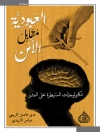After a decade of failed democratization and civil politico-ethnic wars at every election year, an agreement about power sharing has been negotiated and signed in Arusha, Tanzania, in August 2000. It guaranteed representation in state institutions for the different ethnic segments and provided for the establishment of a broad-based coalition government.This study aims at examining the institution of Ubushingantahe (I.B.) after an in-depth analysis of the causes and actors of the various inter-Burundian conflicts related to elections from independence to the recent crisis of 2015 and to finally demonstrate that this institution could help to resolve the electoral conflicts that have plunged Burundi’s social fabric into mourning and destruction for more than 50 years.
Yazar hakkında
Maximilien Nshimayezu is a scholar with a master degree in Management of Peace and Security Studies, MPSA, at the Institute for Peace and Security, Addis Ababa in Ethiopia. Before that, he got another LLM, Law in Human Rights, Central Europe University at Budapest/ Hungary 2006). He is now working as a private expert in Peace and Security with the Center Humanitarian Dialogue in the Great Regions. He also has been acting as Legal Advisor of the Burundian President of the Republic.












